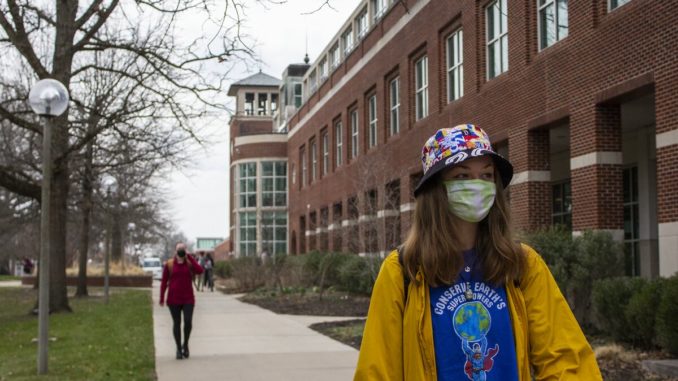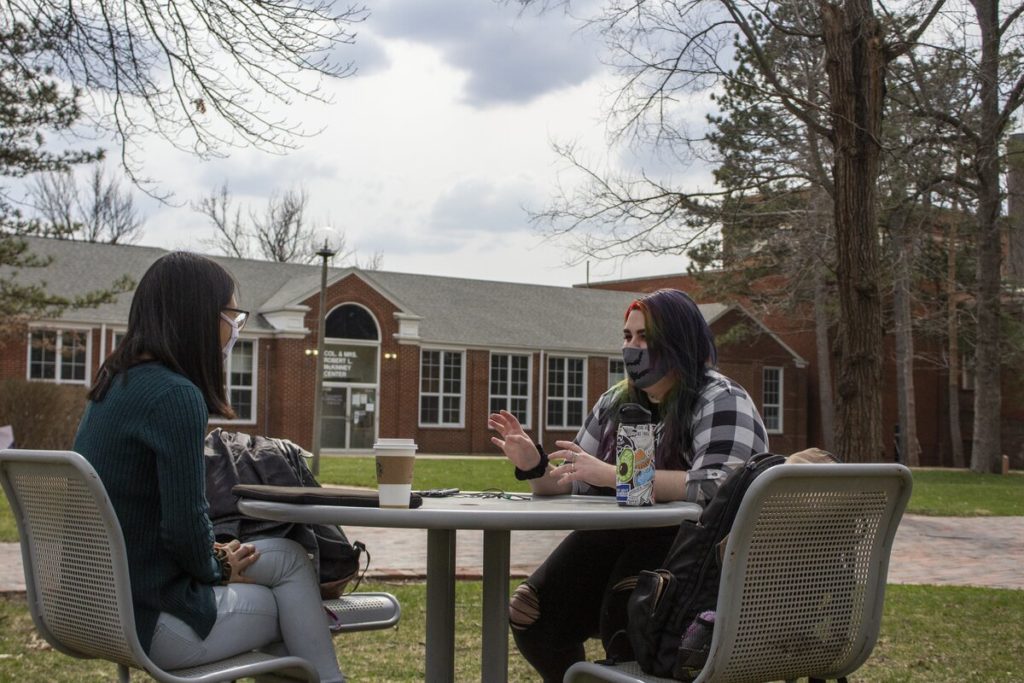
Truman State University is starting to plan for the fall 2021 semester and the COVID-19 regulations it will require.
Brenda Higgins, associate vice president for student health and wellness, said the University looks to the Centers for Disease Control and Prevention guidelines for higher education to create its COVID restrictions.
“We feel like [the CDC is] the ultimate expert in the field of communicable disease so in all cases, we try to follow the CDC guidelines,” Higgins said. “We also try to be in compliance with our county guidelines.”
For example, the Kirksville City Council and the Adair County Health Department instated a mask mandate Nov. 25, 2020. Truman has had its mask mandate in place since the beginning of the fall 2020 semester, so sometimes the University is ahead of requirements of the county.
However, if the Kirksville City Council decides to remove its mask mandate, Higgins said, the University will probably keep its mandate in place until the CDC does not recommend it anymore.

Higgins said the University seems to have grown accustomed to wearing masks over the past year.
“We’re better at reading eyes and facial features than we have been in the past,” Higgins said. “So I think as long as the CDC is recommending and as long as we don’t really have a way of knowing who’s immunized.”
The CDC has recently updated its COVID guidelines to recommend that three feet of distance between people is as effective as six feet of distance.
The University has yet to decide if it is going to adhere to that new guideline in the fall.
“That would allow for not double, but at least a few more people in our classrooms, in our auditoriums and that kind of thing,” Higgins said. “So that that would be positive as long as we were really confident that that was safe.”
Listen to this week’s episode of Dry Ink on this story!
Higgins said that vaccines most likely will not be required in the fall because the vaccines are under an emergency use authorization and not full FDA approval. Because of that distinction, the University cannot require the vaccine and, due to HIPAA protections, it cannot ask who among its faculty, staff or students have been vaccinated.
As for when the University will release the official restrictions for the fall, Higgins said the timeline is unknown. She explained that the University does not want to release the guidelines too soon because the path of the pandemic is still uncertain. She said the University is also aware that people are making plans for the fall that will be dependent on these regulations.
Higgins said the University commonly looks to other universities to see what their regulations and requirements are.
Although the University of Missouri-Columbia is different from Truman in its population and size, it is one university Truman looks to, Higgins said.
The University of Missouri-Columbia announced via Twitter on March 17 that it will be opening Faurot Field for the next football season at its full capacity of 62,621.
Mizzou intends to return to a traditional game day atmosphere this fall at Faurot Field. https://t.co/S9lyueMHyI
— Columbia Tribune (@columbiatribune) March 19, 2021
Truman Athletics has yet to announce if it will allow guests at fall sporting events.
Overall, Higgins said she thinks the University has done a good job at dealing with the pandemic considering no one anticipated it.
She said faculty normally have a semester or two to acclimate to new changes, but with the pandemic they had to get everything online quickly. She said over the past two semesters faculty have perfected the online format.
“We have more ways of offering courses than we did in the past,” Higgins said. “It’s been a struggle for faculty. It’s not just faculty. I think staff have also had the same kind of struggles.”
Higgins cited the example of the University Counseling Services, where counselors had to figure out how to do their jobs remotely.
The University’s primary goal is to protect its students, faculty and staff, Higgins said.
“If some of the other things weren’t perfect but we were able to protect our community, then we achieved our goal and we still were able to provide a quality education,” Higgins said.
